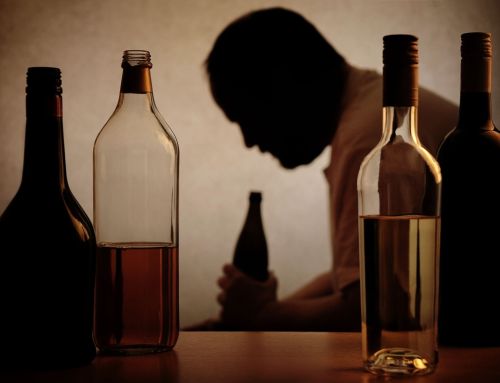
If you have discovered that your son is struggling with alcohol abuse, you have probably experienced every negative emotion known to mankind. Anxiety, fear, self-blame, shame, guilt, and more have probably flooded your mind. The truth is, there’s no right way to feel when you are dealing with the fact that you have an alcoholic son. Whether your child is in his late teens, early adulthood, or a man with a family of his own, you will undoubtedly feel overwhelmed by his current struggle.
Being a parent comes with many challenges. It can be difficult to raise a child, knowing that he will face many hardships. It’s also hard knowing that, when those hardships come, you won’t be able to protect your child from them all. Addiction, sadly, is one of those hardships that many parents see their children face. So. if you have a son who is suffering from alcohol dependence, you know the difficulty of trying to help. Having an alcoholic son can be heartbreaking and life-changing for you. But, now is the time to learn how to get help for an alcoholic. Learning more about the resources available for your son and your family can help you all tremendously.
About Alcoholism: Signs, Symptoms, and Effects
Alcoholism is a disorder that is characterized by a severe dependence on alcohol. Also known as alcohol use disorder, alcoholism develops as a result of excessive drinking and can cause people to feel unable to operate “normally” without the use of this substance.
Many times, those who suffer from alcohol abuse may experience many changes in their lives. Some of these changes may be clear and obvious signs of alcohol addiction. But the signs of alcoholism may not always be apparent. So, it’s important to be aware of all of the behaviors and characteristics that could indicate the presence of an alcohol use problem.
If you’re not sure whether or not your son is struggling with alcoholism, the following questions might help you to identify this disorder in your loved one’s life:
- Does your son drink in secrecy or alone?
- Does he drink alcohol first thing in the morning?
- Are irritability and agitation normal occurrences in his life?
- Is your son choosing alcohol use over important responsibilities?
- Do you find that your son frequently drinks in order to de-stress or unwind?
- Is he spending more and more time with people who abuse drugs or alcohol?
- Does your son seem to be less interested in activities that he used to enjoy doing?
- Does he become defensive whenever someone mentions the amount of alcohol he’s drinking?
- Is your son becoming more socially withdrawn or distant from you and your family members?
- Does your son often try to quit using alcohol or limit his alcohol use without success?
If you have seen these signs in your son’s life, he may an alcohol use disorder. This may cause you to wonder how this happened and how you can help him. One of the best things you can do is learn more about the causes of alcoholism and some available treatments and resources.
Identifying the Contributing Factors of Alcohol Dependence
Alcohol is a legal substance and many people consume it regularly. It’s common to see alcoholic beverages at social gatherings. Families and friends often share drinks while celebrating or enjoying time together. However, for many people, an occasional drink is not really an option. Instead, the action of drinking becomes an excessive one, eventually leading to an uncontrollable craving for this substance. But how does that happen?
It’s possible that some people may be more prone to develop an alcohol addiction than others (mainly due to genetics, environment, and other factors.) But, one thing remains true in most or all cases: alcoholism is a result of brain-related changes.
Excessive alcohol use can alter the chemicals and structures within the brain. As a result of these changes, individuals may experience changes in the way their bodies respond to alcohol. The substance may produce a more pleasurable effect, which may increase and intensify cravings for alcohol.
Mental health disorders may also contribute to the development of alcohol abuse. Individuals who suffer from depression, anxiety, or another mental illness may develop an addiction to drugs or alcohol for several reasons. One reason may be self-medication; many individuals use substances in order to cope with or escape from the effects and symptoms of mental health disorders.
Stress, low self-esteem, and peer pressure could also cause a substance use problem to develop. Also, individuals who live with or spend a lot of time around others who suffer from substance dependence may develop addictions. So, a child who was raised in a household where substance use was no stranger may be more prone to become dependent on alcohol and/or drugs.
Information About Withdrawal Symptoms
Once a person becomes used to drinking a certain amount of alcohol, his body will begin to depend on the substance. As a result, the individual will experience withdrawal symptoms as the effects of alcohol wear off. Some alcohol withdrawal symptoms a person may experience include the following:
- Headaches
- Agitation
- Nausea
- Vomiting
- Anxiety
- Fever
- Seizures
- Insomnia
- Confusion
- Disorientation
- Hallucinations
- Delirium tremens
- Shakiness in hands
- High blood pressure
The symptoms of alcohol withdrawal can be moderate or severe. But, regardless of whether or not they are intense, they are all uncomfortable for the individual struggling with alcoholism. Unfortunately, many people relapse or continue to use alcohol because of these withdrawal symptoms. So, ending alcohol use is not usually easy for individuals who suffer from alcohol use disorder.
How to Get Help for An Alcoholic Son
Figuring out how to best help an alcoholic can be very challenging. As we mentioned earlier, your son may become defensive or aggressive whenever you mention his drinking patterns. This can make it difficult to reach out to him about getting help. But, it’s important to end alcoholism in order to prevent any long-term physical, mental, and emotional effects.
Again, learning more about addiction and how it affects people is one of the best things you can do to help your son. It will give you better insight and understanding of what your son is experiencing. This can help you as you prepare to approach him.
Another thing you can do to help your son is to avoid enabling behaviors. It can be hard to turn down his requests for money or a place to live. But, if paying his bills, giving him money, or offering him a place in your home is helping him to obtain more alcohol, it’s best to avoid these actions.
You may need to stage an intervention in order to help encourage your son to get treatment. An intervention is a meeting that usually involves a struggling individual, some of his loved ones, and a therapist. It gives you an opportunity to talk to the individual about his substance use and its effects on his own life as well as yours.
Finding a rehab center that can help your son is another thing you can do to help him. You can help your child to enroll in rehab and support him throughout treatment. Your love and support will be extremely meaningful for him as he walks through this new journey.
Treating Alcohol Use Disorder
The addiction treatment process consists of various programs and therapeutic methods. Each of these components can work together to help people address their needs, find physical freedom from substance use, and deal with their emotional needs.
Treatment Programs
Drug and Alcohol Detox
A detoxification program is usually the first step in the treatment process. While trying to end an addiction, individuals may encounter many of the withdrawal symptoms we mentioned earlier. It’s important to have medical and professional attention throughout the withdrawal process. This ensures safety and assistance during the difficult moments and access to medical help should any serious or severe symptoms arise.
Inpatient Program
Many people go through a residential or inpatient program as part of the treatment process. This type of treatment program is usually the most effective option for those who suffer from a severe case of addiction. In a residential program, individuals live at their rehab facilities. They remain there for the duration of their treatment process. This allows people to spend time in a safe, substance-free environment. It also provides individuals with access to medical professionals and therapists every day and all day.
Partial Care Program
Partial care programs enable people to participate in recovery for multiple days out of the week. In essence, this type of program provides a rehab option to those who may need the extensive nature that residential treatment offers and aren’t really ready to go through an outpatient program.
Outpatient or Intensive Outpatient Programs
Those who suffer from substance dependence can also benefit from an outpatient program or an intensive outpatient program (IOP). Both of these programs allow individuals to receive treatment and attend therapy sessions while living at home or in a sober living environment. They can be considered as programs that help people to transition from inpatient care back to life outside of treatment.
Types of Therapy for Addiction Recovery
Group Therapy
This type of therapy allows individuals to gather in a small group along with a therapist. In group meetings, individuals can discuss their journeys, challenges, and victories. They can learn from one another, develop interpersonal skills, and become more confident about their own lives. Group therapy is often thought to be an uncomfortable atmosphere. But, rehabilitation centers that offer this type of therapy work to make the environment both comfortable and understanding so that recovering individuals can freely communicate with one another.
Individual Therapy
This kind of therapy consists of an individual and a therapist. During these meetings, people can discuss their personal lives without fear of judgment. These one-on-one environments are often comfortable for those who are beginning their recovery journeys, especially once trust develops between individuals and their therapists. Individual therapy often encourages deep self-reflection. It works to uncover and identify harmful thought processes, negative patterns, past trauma, and much more.
Contact North Jersey Recovery Center Today
Seeing your child suffer from the unforgiving disease of addiction is one of the most difficult things you can experience. It’s not easy to watch someone you love struggle with something like substance abuse. But, there is hope for your son who is suffering from alcoholism. It’s not too late to get help for your alcoholic child!
Here at North Jersey Recovery Center, we strive to offer hope and help to each individual who is struggling with addiction. We understand that those who come to us for help have specific needs that need to be addressed. We also understand the effects alcoholism and drug abuse can have on the lives of those who suffer from these disorders. This is why we work to provide the most effective and comprehensive resources possible. If your son is suffering from addiction, it’s likely that you and the rest of your family members are also struggling in various ways. But, please know that this can all change, starting today!
To learn how our team here at North Jersey Recovery Center can help you, just contact us. We are committed to offering our clients the best available treatment services in a safe and understanding environment. Our goal is to facilitate emotional, physical, and mental healing to all those impacted by addiction. So, reach out to us today and we will help you and your loved one to begin the journey to recovery. We look forward to walking with you throughout this process!










